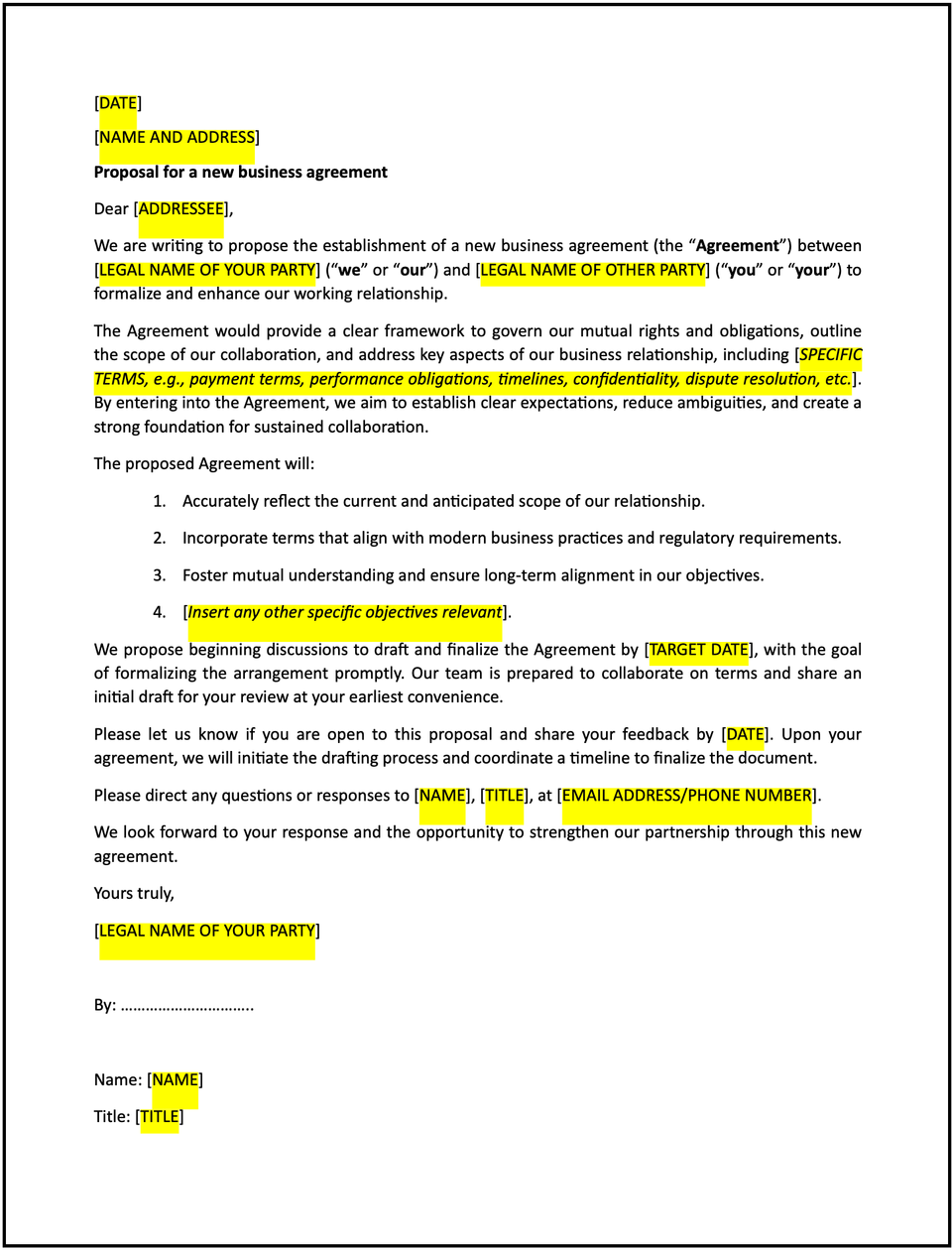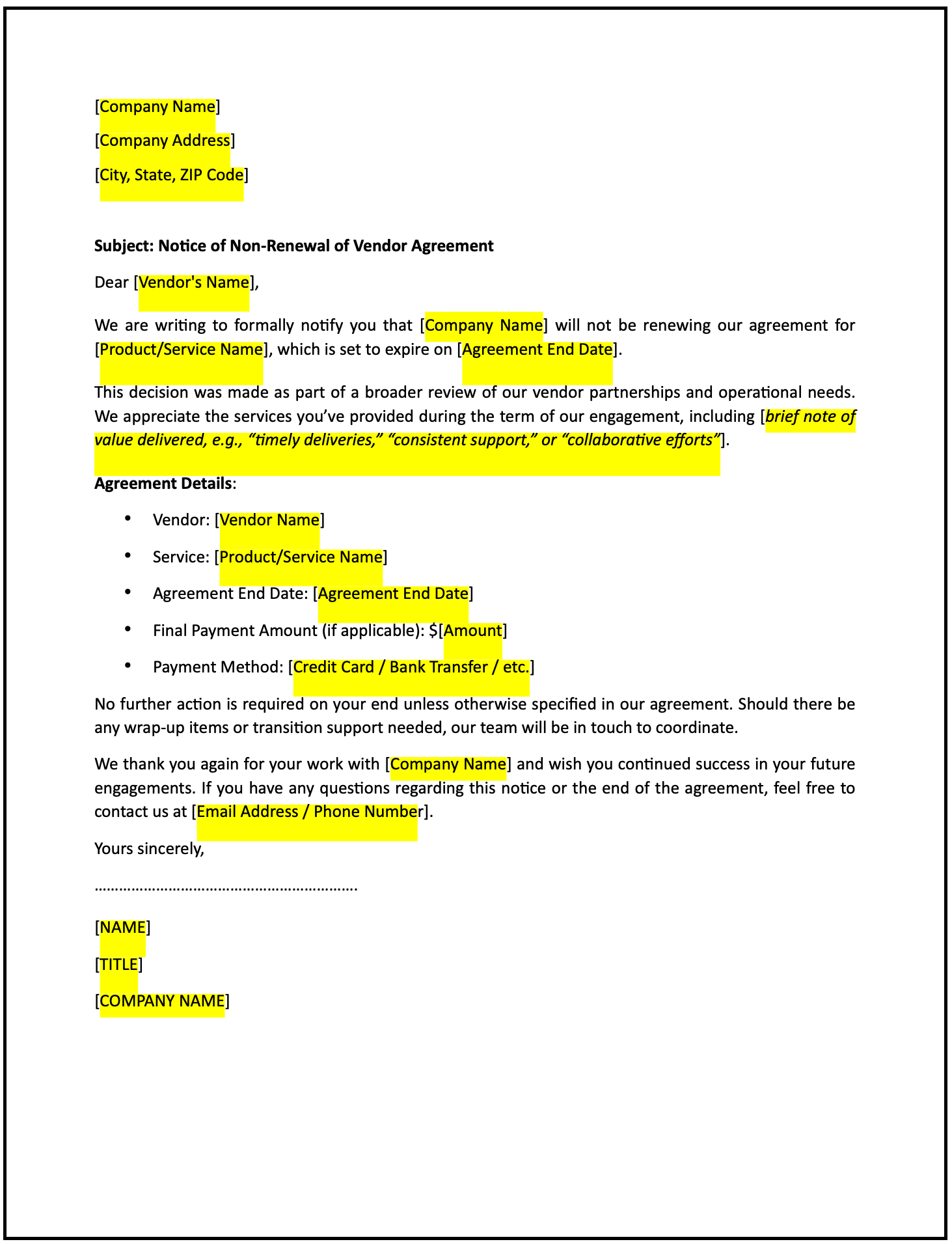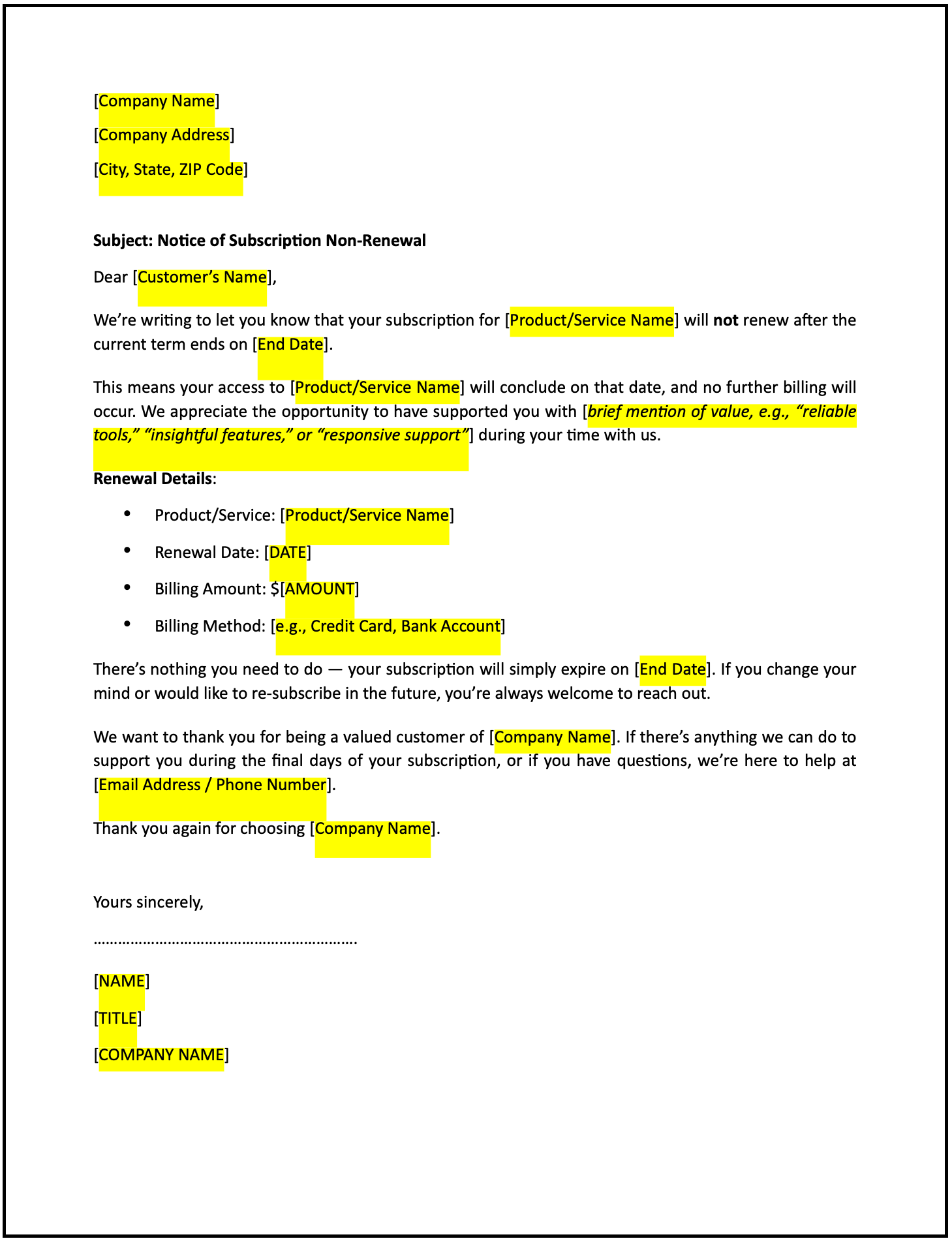Proposal letter for a new business agreement: Free template

Proposal letter for a new business agreement
Proposing a new business agreement is a significant step in establishing a professional relationship or expanding existing partnerships. This letter provides a professional way to present the proposal, outline its key terms, and invite the other party to collaborate on the agreement.
How to use this proposal letter for a new business agreement
- Introduce the proposal: Clearly state the purpose of the letter and the intent to propose a new business agreement. Provide a brief overview of the proposal.
- Highlight key terms: Summarize the key terms or structure of the proposed agreement, including objectives, timelines, or deliverables.
- Explain the rationale: Provide a concise explanation of why the agreement is beneficial and how it aligns with both parties' goals.
- Suggest next steps: Propose a meeting, call, or other follow-up actions to discuss the proposal and address any questions.
- Maintain a professional tone: Ensure the letter is respectful and collaborative, emphasizing mutual benefits and a willingness to work together.
- Request acknowledgment: Ask the other party to confirm receipt of the letter and provide their initial feedback or interest.
Benefits of using a proposal letter for a new business agreement
This letter template provides a structured and professional way to initiate discussions for a new business agreement while fostering transparency and alignment. Here’s how it helps:
- Establishes clarity: Outlining the proposal in writing ensures all parties have a clear understanding of the key terms and objectives.
- Demonstrates professionalism: A well-crafted proposal reflects respect for the other party and a commitment to collaboration.
- Facilitates discussion: Providing a structured overview encourages constructive dialogue and helps streamline the negotiation process.
- Builds trust: Proactively communicating the benefits and rationale for the agreement fosters confidence and goodwill.
- Creates a formal record: The letter serves as a written record of the initial proposal, which can be useful for reference during negotiations.
Tips for writing an effective proposal letter for a new business agreement
- Be specific: Clearly define the purpose and key terms of the proposed agreement, avoiding vague language.
- Focus on mutual benefits: Highlight how the agreement aligns with the goals and interests of both parties.
- Use professional language: Maintain a respectful and collaborative tone to foster positive discussions.
- Anticipate questions: Address potential concerns or areas requiring clarification to demonstrate thoughtfulness and preparation.
- Keep it concise: Focus on the key elements of the proposal and avoid unnecessary details or commentary.
Frequently asked questions (FAQs)
Q: What details should I include in this letter?
A: Include the purpose of the proposal, key terms of the agreement, the rationale, and next steps for discussion.
Q: Should I include a draft agreement with this letter?
A: While not required, including a draft agreement can help clarify the proposal and facilitate quicker discussions.
Q: Who typically receives this letter?
A: Send the letter to the decision-makers or representatives of the other party, such as legal, operations, or business development teams.
Q: How formal should this letter be?
A: The tone should be professional and collaborative, reflecting the importance of the proposed relationship.
Q: When should this letter be sent?
A: Send the letter after thoroughly preparing the proposal to ensure clarity and readiness for follow-up discussions.
Q: Can this letter include alternative proposals?
A: Yes, offering multiple options shows flexibility and can help identify mutually agreeable terms more efficiently.
Q: Is acknowledgment from the other party required?
A: While not legally required, acknowledgment is important to confirm receipt and gauge initial interest.
This article contains general legal information and does not contain legal advice. Cobrief is not a law firm or a substitute for an attorney or law firm. The law is complex and changes often. For legal advice, please ask a lawyer.


